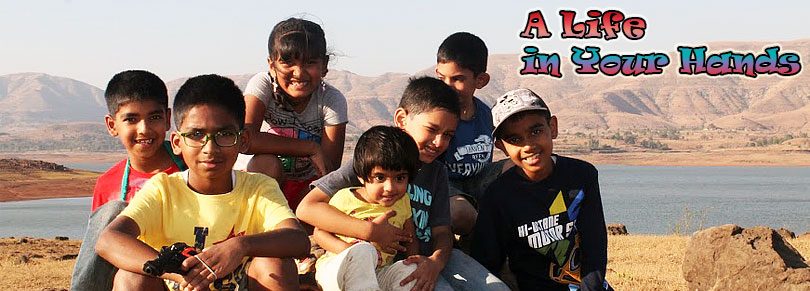Congratulations Parents! You are doing an amazing job, no matter what struggles, worries and heavy loads you bear, you are responsible, striving and hard working. Parenting is definitely not easy; it is an art you learn as time passes. However, some of us master the art after our kids have already grown out of the phase. Well, we are not born with parenting skills, it a continuous learning process. This article will help you understand your children better, guide and equip you with simple practical tips from a child psychology point of view.
“Children today are tyrants. They contradict their parents, gobble their food, and tyrannize their teachers.” ~ Socrates, 420 BC
If you think kids yesterday were better, you are mistaken; they have always been a handful. How do we deal with it? Is it ok to be honest with them? Are they taking us for a ride and manipulating us? What are the limits we need to set? These are common questions we face every day.
Understanding Ourselves
Before we get into the aspect of understanding our children it is essential that we first understand ourselves. The reality around us is that we live in a fast paced world with work stress, marital issues, family problems and health issues to deal with. First of all we need to slow down and take care of ourselves to see things in a calmer perspective when it comes to our children. One of the most disturbing cases I have handled was an eleven year old boy who was depressed and acting out in school.
After a few counselling sessions I realized that he was being physically abused at home by his mother. On further inquiry we realised that she had postpartum stress disorder (After having a child, stress can lead to this). She had anxiety issues and abused this boy and his younger baby brother. The tragic part is she refused medication and the children were forced live with this cruelty. While not all of us have such deep issues, everyone gets stressed and taking care of young children along with other everyday issues can take quite a toll on you and this at times gets transferred on to children in the form of impatience, irritability, short temperedness etc.
This in turn leads to the child seeking more attention and acting out in ways that lead to disciplining and the cycle continues. There are some practical ways to control these situations and the first step is to take control over your own emotions and state of mind.
- Take time out for yourself – pursue a hobby
- Look back at the successes and appreciate yourself
- Meet up with people who can affirm you
- Ask for feedback periodically from children as to how you have changed
- Accept your weakness and vulnerabilities, being genuine makes children less intimidated
- Understand your physical, emotional and social needs and work on them
- Talk to someone about your struggles, probably of the same age and learn from one another
- Read books on parenting that will give you a different perspective
- Search for spirituality which gives us peace and hope
- Exercise- Physical exercise helps you deal with stress
- Decide together as parents what kind of parenting, punishments, rewards would be best suited for your child. Too many different approaches confuse children and also may lead to manipulation by the child to suit his/her needs.
What do children need?
“Children want the same things we want. To laugh, to be challenged, to be entertained, and delighted.” ~ Dr. Seuss
This quote sums up parenting from the children’s perspective.
As parents we want to see the best in our children, we want them to succeed, be accepted and be stars. The safe environment at home plays a significant role in understanding who they are, learning to accept themselves unconditionally and achieve targets. Make sure they feel safe to fail; this prepares them to rise and fall in the world. Be there for them, understand, empathise, and know how their mind processes things. It is important to spend quality time; this would mean a family day out, or a one on one with the child, not merely something on your to-do list but a time to hear them out and assure them that they are safe with you.
Some important aspects of parenting that as a counsellor I often have to deal with when it comes to children
Perfectionism
Right from when we are born we seek approval of others, in a child it would be the parents, failing us would feel like they are a failure to themselves. Goal setting and reaching targets are essential, and should be carefully put across keeping in mind the child’s age, ability and talent. In cases where it is unrealistic or leads to failure, how we handle it really shapes the child. This would affect their self concept, and they may tend to give up easily. Reinforce continuously that they are good and special regardless of whether they win or lose. Make them feel safe and loved despite any failures or setbacks.
Rigidity
We as adults have our way of doing things, according to us that’s the best way it would work. This translates to children around as we teach them many things. Make sure you leave some space for creativity and a sense of productivity in them which are good sources of motivation. Giving them the chance to do something and appreciating them improves their self-concept and confidence.
Physical and Verbal Abuse
In the multiple children I have seen, the one thing they are terribly hurt by is abuse. Be it physical or verbal. Spanking and discipline could have their place n parenting but our motivation and goals should be made very clear. The reason as to why he/ she was disciplined and how he can avoid it next time should be clearly explained. Many a times we expect the other person to understand exactly what we mean without really saying it; this allows for a sea of misconceptions, wrong and misguided beliefs which last through a lifetime. It has grave consequences when they are children. Verbal abuse could be even more endangering, calling names like “idiot, “fool”, “stupid” could scar them and they could pick these expressions to use on others which then become another disciplinary issue.
Repression
Open and direct communication, free expression of ideas, love and anger should be encouraged. If something could be done better then that should be taught to them patiently. Snubbing, belittling, and criticizing their ideas would wound them and give them a negative self image. If they think they are unable to measure up, they may quit trying. If they quit trying they may make their own world of ideas of no supervision and correction which could easily lead them astray.
Behaviour patterns
Always try appreciating or correcting the act/behaviour rather than the child. Make sure he knows no matter what he does he is your child and you will love him, what you won’t tolerate are his acts of carelessness. When a child responsibly cleans up the dinner table it’s good to say “That was very nice of you, good job at cleaning the table” instead of “good boy/girl” When you say good child the child is ecstatic and after some time wants to hear it again. If the behaviour is appreciated it may motivate him to repeat it. Same with the child spilling water, breaking things “That was not a very good act, a little more effort in being careful would be better,” rather than saying “You are always careless, look at yourself, you will never learn”.
The best counsellor for your child – YOU
Parents can be the best counsellors for their children. Here are some skills which you could use to interact with your child if he is having a problem.
Before proceeding into any skill/technique/problem solving method, make sure you understand the complete story and ensure you convey to your child that you are there to help them and not to determine if he did something wrong.
|
Practical example
These are just a few practical ways you can ease your load and help your children and gain a better understanding about your role as parents. Conflict is not loved by anyone, so let’s learn to manage conflicts well and assure the healthy well being of yourself and your children. |
If a child lives with criticism, he learns to condemn
If a child lives with hostility, she learns to fight
If a child lives with ridicule, he learns to be shy
If a child lives with shame, she learns to be guilty
If a child lives with tolerance, he learns to be patient
If a child lives with encouragement, she learns confidence
If a child lives with praise, he learns to appreciate
If a child lives with fairness, she learns justice
If a child lives with security, he learns to have faith
If a child lives with approval, she learns to like herself
If a child lives with acceptance and friendship, they learn to find
love in the world
– Dorothy Law Holte






dating for singles https://jewish-dating-online.net/
coursework masters https://courseworkdomau.com/
design technology coursework https://buycoursework.org/
coursework master https://teachingcoursework.com/
coursework paper https://coursework-expert.com/
coursework plagiarism https://courseworkinfotest.com/
creative writing coursework ideas https://courseworkdownloads.com/
coursework help university https://mycourseworkhelp.net/
coursework writing https://writingacoursework.com/
coursework info https://courseworkninja.com/
coursework questions https://brainycoursework.com/
[…] are primarily affected are men and Keto Now Pills women that are going to complete carbohydrates or Keto Now Review fats utilizing. Since the body had not been fed with carbs, ending a cyclical cyclical ketogenic […]
2illiterate
His courage is put to the last word take a look at as this unlikely hero aims
larger than he ever imagined.
white paper writing services https://studentpaperhelp.com/
buying papers https://ypaywallpapers.com/
write my biology paper https://papercranewritingservices.com/
pay for a paper https://essaybuypaper.com/
write my english paper for me https://writemypaperquick.com/
buy a college paper https://mypaperwritinghelp.com/
paper writing company https://buyessaypaperz.com/
buy cheap papers https://writingpaperservice.net/
buy cheap papers online https://researchpaperswriting.org/
websites that write papers for you https://top100custompapernapkins.com/
buy writing paper https://doyourpapersonline.com/
buy a college paper online https://write-my-paper-for-me.org/
write my economics paper https://writepapersformoney.com/
where to buy college papers https://paperwritinghq.com/
ghost writer for college papers https://uktermpaperwriters.com/
write my college paper for me https://sociologypapershelp.com/
gay fl chat https://gaymanchatrooms.com/